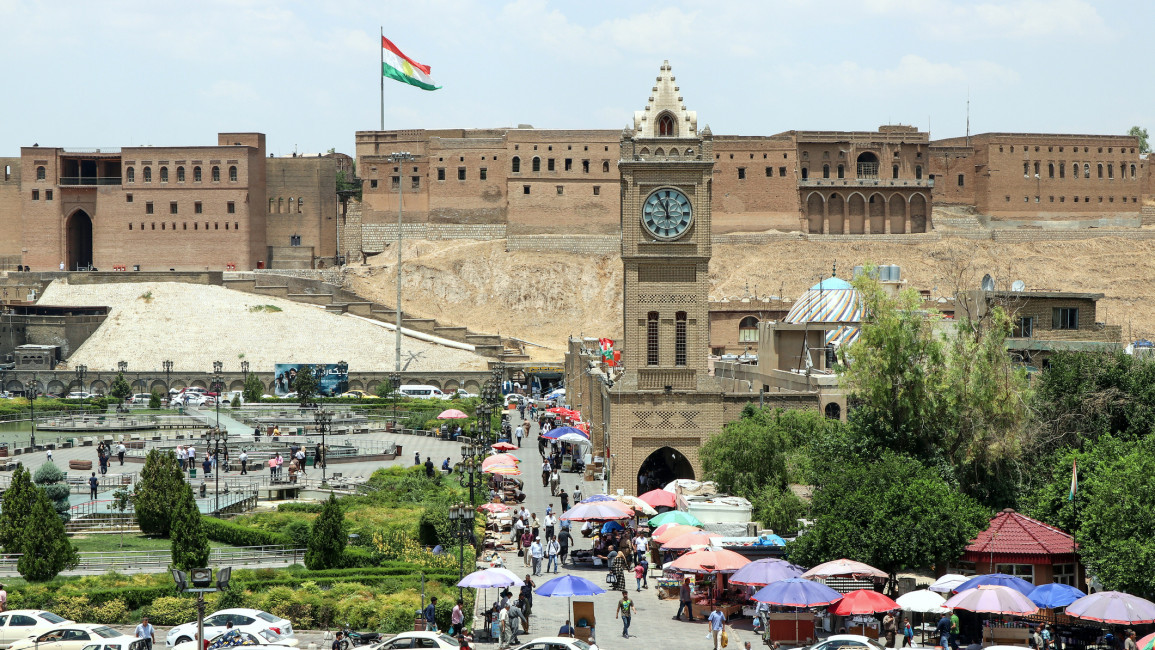Kurdish detainees in Erbil launch hunger strike to protest torture, arrest without trial
Amjad Yusuf Rekani, a human rights activist from the Shiladze area of the Duhok province in the Kurdistan region of northern Iraq, is in "very bad health" after over 20 days of a hunger strike to protest his arrest and torture by Kurdish security forces, his family said in a statement to the press on Monday.
Four other detainees joined Rekani's hunger strike this past Sunday, also to protest their arrest and ill-treatment by the security forces. All five detainees are activists who have been held without trial since late 2020.
"Since our abduction by the [Kurdish] security forces, we have been severely tortured and they forced us to confess some alleged crimes. They have videotaped our false confessions and plan to release them to the public," reads a statement by the detainees that was shared with their families, who in turn sent a copy to The New Arab.
"The Kurdish authorities denied us access to our lawyers, and during interrogation, they changed our testimony and forced us to sign unknown confessions," the statement added.
Both the detainees and their families urged the United Nations offices in Iraq, local and international media as well as various human rights organisations, Kurdish lawmakers and the people of Kurdistan to "urgently" spotlight the case and pressure the authorities to allow the detainees access to their lawyers and set a final date for their trials.
"Prisoners from Shiladz are in very bad health conditions. Some of them are suffering from skin diseases and other wounds. One of the prisoners started a hunger strike 20 days ago, and the rest since Sunday. They vowed to not end it until they die or are free. They have committed no crimes, other than having different views and participating in non-violent demonstrations. If there were the rule of law in this region, they should be freed," part of the statement read.
Since early 2019, security forces of the Kurdistan Regional Government (KRG) have detained hundreds of protestors, activists and journalists across the region, following widespread protests against poor services, unpaid salaries, the existence of Turkish military bases as well as airstrikes against civilians in the region.
In June 2020, residents of the Shiladze area of Duhok province took to the streets to protest Turkey's airstrikes which claimed the lives of several locals from the area. The five detainees were arrested in December of that same year.
While a few of the detainees were sentenced over charges of "endangering national security", several other detainees still await trial amid indifference by the Kurdish executive and legislative authorities.
"We are aware of the case of Shiladze prisoners. There is no evidence against the five men and they have been held without trial since their detention. We are very concerned about their conditions in jail. They have been tortured as per the testimony of their families to our organization," Kamaran Othman, a member of the Community Peacemaker Teams - Iraqi Kurdistan (CPT), an NGO monitoring human rights abuses in the Kurdistan region and Iraq, told The New Arab during in a phone call.
"The five men are now held at Erbil's General Security, and they were allowed to see their families after three months of detention. All those people who were arrested [during that period] are prisoners of conscience and the cases against them are politically motivated," Othman added.
The New Arab contacted Tariq Nuri, the spokesperson for Erbil Security, and Dindar Zebari, KRG's coordinator for international advocacy, but both were unavailable to comment.
On her part, Shadi Nawzad, a Kurdish member of the human rights committee in the Kurdistan region's parliament, told The New Arab, "It is true that in the Kurdistan region we have the issue of prolonged detentions without due trials."
"As per Shiladze prisoners, it is also a question for me why they have been held without trial. I have tried hard, and our committee also tried to know about this case, but the executive authorities are not responding to us," Nawzad added.



